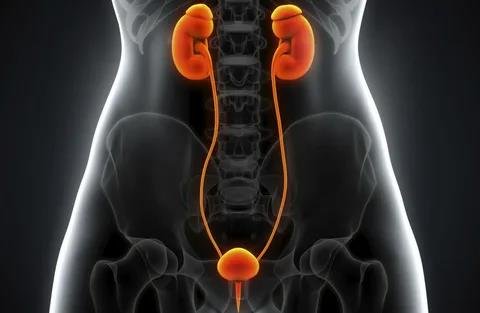Most women with uterine fibroids may not even think about this blood disease, anemia. However, for most women, the two go together. So, let’s look at how these two diseases are linked and how to recognize their symptoms.
What Are Uterine Fibroids?
These are benign tumors that appear in or around the womb. They are very common, especially in women in their reproductive years. These growths are often asymptomatic but can lead to significant health issues, such as heavy bleeding and pain. Timely care not only avoids such complications but also enhances life’s quality. Whenever you find any such signs of fibroids, do not hesitate to seek help from a fibroids specialist in El Paso.
Types of Uterine Fibroids
Fibroids may be of different types depending on their site:
– Intramural Fibroids: These are fibroids located within the muscle of the uterus.
– Submucosal Fibroids: These are situated just beneath the inner lining of the uterus and protrude into the uterine cavity.
– Subserosal Fibroids: These are fibroids that grow on the outside of the uterus.
– Pedunculated Fibroids: These fibroids are found attached to the uterus.
Causes and Risk Factors
Even though the precise reason is not completely known, several factors could have a bearing:
– Hormones
– Genetics
– Lifestyle
An Explanation of Anemia
Anemia is not merely a condition but a red flag indicating that the human body is unable to provide the demand for oxygen. It occurs when the body experiences a shortage or deficiency of hemoglobin and healthy red blood cells in the bloodstream.
Hemoglobin is the membrane protein that encases oxygen and conveys it to different tissues, which serve as a fuel for all the functions in the body. When you have anemia, your body is only able to function on half a battery.
Causes of Anemia
The following are key issues causing anemia:
– Insufficient iron, vitamin B12, or folic acid in the diet.
– Chronic illnesses like kidney failure and inflammatory diseases reduce the body’s ability to manufacture red blood to the required level.
– Substantial loss of blood during injuries, surgical processes or heavy menstrual cycles usually lead to anemia.
– Genetic factors, as in the case of sickle cell anemia
The Link Between Uterine Fibroids and Anemia
Many women suffer from heavy bleeding during their menstrual cycle due to the formation of fibroids in the uterus. This can lead to anemia. In this section, we’ll discuss the conditions in detail and see how they are interlinked with each other.
How Menorrhagia is Caused by Uterine Fibroids
Uterine fibroids, specifically submucosal ones, can significantly expand the area of the endometrium (layer of tissue that encloses the uterus). This leads to excessive amounts of blood loss during the menstrual cycle. Additionally, uterine fibroids have a negative effect on the contraction of the uterus, making it much more difficult to suppress excessive bleeding during the cycle. All of these factors together increase the risks of anemia.
The Adverse Effects of Chronic Blood Loss
Excessive blood loss over time can reduce the body’s iron reserves. And since iron is vital in producing red blood cells, the more blood lost, the more difficult it becomes for the body to produce a sufficient amount of red blood cells. The result of this imbalance is most commonly known as iron deficiency, a condition where people are always feeling tired and lethargic.
Iron Deficiency and Its Effects
The lack of iron not only depletes attention or energy but also has various effects on the body. The body is unable to process oxygen efficiently without adequate iron. So, the person sustains brain fog, flaky nails, or even a heightened risk during infections. In some cases, an iron deficiency that stays for a long time may end up having detrimental side effects on a person’s health. Managing anemia and fibroids together is imperative in those cases.
Symptoms to Observe
Heavy period bleeding should not be taken lightly. This is a warning sign for other issues, such as fibroids in the uterus. If left untreated, problems can get worse. Let’s take a closer look at how to detect early symptoms of each of these problems.
Signs of Uterine Fibroids
In the case of uterine fibroids, early diagnosis leads to more effective treatment. The following are the general signs one should pay attention to in the search for this condition:
– Menstruating with heavy blood or for a prolonged time: This is regarded as one of the earliest symptoms of people who have fibroids. Women, for instance, might observe themselves quickly soaking up pads or even noticing that they have their periods extending above seven days.
– Pelvic pain or pressure: Due to their location and size, fibroids can cause pain by pressing on nearby organs. This pressure can cause discomfort in the lower abdomen.
– Frequent urination: If the fibroids are applying pressure onto the bladder, then there is an increased frequency of getting the urge to urinate despite the bladder not being filled fully.
– Painful intercourse: The pain associated with fibroids may render sexual intercourse painful.
Symptoms of Anemia
These symptoms are a direct indicator of the need to consult a specialist:
– Weakness and fatigue: Feeling abnormally tired or weak even after ample rest is a common issue. It is as if your body is always functioning on an empty tank.
– Pale or yellowish skin: Anaemia can take away the natural hue of your skin, which would appear pale or yellowish.
– Breathlessness: Even minor exercises can leave one gasping for breath, which is due to blood’s reduced capacity for oxygen delivery.
– Dizziness: If the circulation of blood in the human body gets affected for some reason, then the level of oxygen available to the brain can decrease. This, in turn, can explain frequent bouts of dizziness.
– Cold feet and hands: Weak blood circulation due to anemia can also lead to numbness or coldness in the hands and feet.
Conclusion
Anemia and uterine fibroids are two different things. However, understanding their connection can help you take over and manage your health. You should always keep in mind that the journey can become difficult, but you are not alone. You can always find support.




